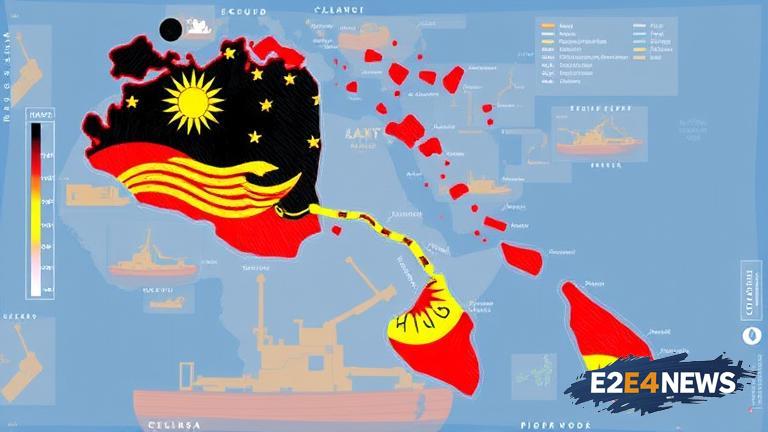Papua New Guinea has introduced significant reforms in its oil sector, aiming to increase investment, revenue, and transparency. The government has established a new regulatory authority to oversee the industry, ensuring that all operations are conducted in a safe and environmentally responsible manner. This move is expected to enhance the country’s reputation as a reliable and attractive destination for oil and gas investors. The new production sharing policy is designed to provide a more equitable distribution of profits between the government and oil companies, promoting a win-win situation for all stakeholders. The reforms also include measures to improve the environmental and social impact of oil and gas operations, such as stricter regulations on pollution and community engagement. Furthermore, the government has committed to increasing transparency and accountability in the sector, with regular audits and reporting requirements for oil companies. This will help to build trust with local communities and ensure that the benefits of oil and gas production are shared fairly. The reforms are also expected to create new job opportunities and stimulate economic growth in the country. Papua New Guinea’s oil sector has been a significant contributor to the country’s economy, with major oil fields such as the PNG LNG project and the Kutubu oil field. However, the sector has faced challenges in recent years, including declining production and revenue. The new reforms aim to address these challenges and put the sector on a path to sustainable growth and development. The government has consulted with industry stakeholders, including oil companies and community groups, to ensure that the reforms meet the needs of all parties involved. The new regulatory authority will be responsible for monitoring and enforcing compliance with the new regulations, and will have the power to impose penalties on companies that fail to meet the required standards. The production sharing policy will be based on a sliding scale, with the government’s share of profits increasing as oil prices rise. This will help to ensure that the government receives a fair share of the revenue generated by oil and gas production. The reforms also include measures to promote the development of local content, such as requirements for oil companies to use local goods and services. This will help to stimulate economic growth and create new opportunities for local businesses. Overall, the reforms are expected to have a positive impact on Papua New Guinea’s oil sector, and will help to ensure that the country’s natural resources are managed in a responsible and sustainable manner. The government is committed to continuing to work with industry stakeholders to ensure that the reforms are implemented effectively and that the sector continues to grow and develop. With the new reforms in place, Papua New Guinea is poised to become a more attractive destination for oil and gas investors, and to reap the benefits of its significant oil and gas reserves. The country’s oil sector is expected to play a major role in driving economic growth and development in the coming years, and the government is committed to ensuring that the benefits of this growth are shared fairly with local communities. The reforms are a significant step forward for Papua New Guinea’s oil sector, and will help to ensure that the country’s natural resources are managed in a responsible and sustainable manner. The government’s commitment to transparency and accountability will help to build trust with local communities and ensure that the oil sector is developed in a way that benefits all stakeholders. The new regulatory authority and production sharing policy will provide a framework for the sustainable development of the oil sector, and will help to promote investment, revenue, and economic growth in the country.
